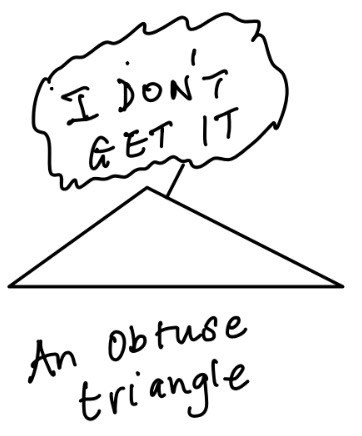
Personal Blogs
枯朶に烏のとまりけり秋の暮
on a withered branch
sits a crow
autumn nightfall
Last night I broke into a cheese factory and made away with some curds.
I found this attractive fungus growing at the base of a small fig tree I have in a pot. It's about 4 cm in diameter.
What is it?
I've asked on a couple of forums but so far no definite identification. It might be a wax-cap of some kind but that is a far as I've got.
Can anyone help?
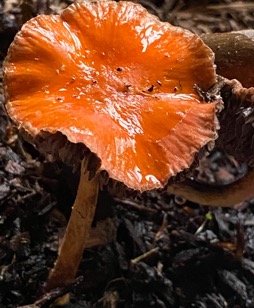
There was an old man of the sea,
Who said, this is no life for me.
Fish nibble my nose,
My fingers and toes,
Can’t I just stay in and watch the TV?
Who said, this is no life for me.
Fish nibble my nose,
My fingers and toes,
Can’t I just stay in and watch the TV?

Here's a phot my brother took of a goldfinch

The name carduelis is Latin for something like "of the thistle" I think, because they are so fond of thistle-seeds but this one was amongst some forget-me-nots!

A friend sent me this picture of a Cornish forest.
From the Uxbridge English dictionary: exuberant - ant who’s given up driving taxis.
Cyclamens at Anglesey Abbey in Cambridgeshire,30 September 2023.

Someone asked “What’s that funny hair on your upper lip?” I was like “Not got time to explain right now. Must dash.”
Last night photoed this rather attractive moth in my local. It's pretty, but it's an invasive and harmful species.
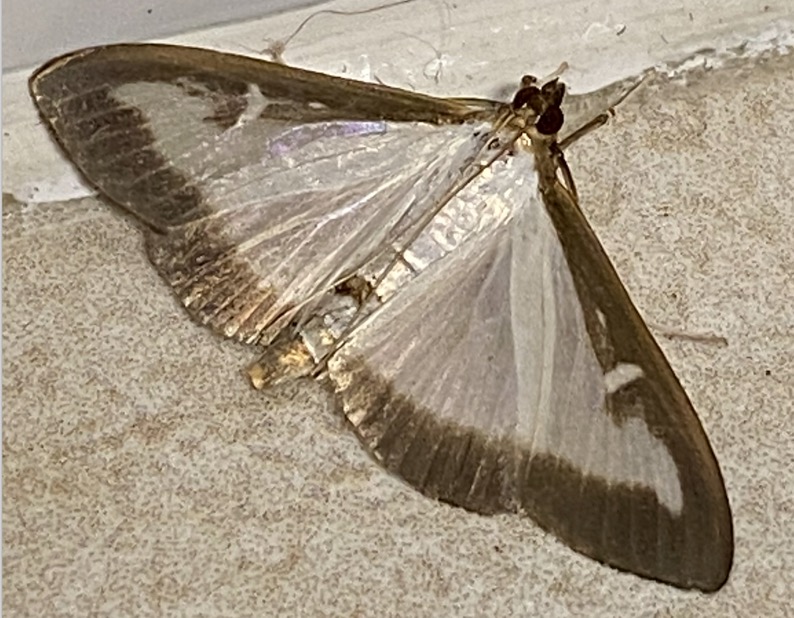
By chance my brother snapped one of these the day before and sent me the pic and an ID. So I recognised it at once as a box tree moth.
They are native to China, Japan, East Russia, India and neighbouring regions, where there is biological control from, from example, hornets. But in the last few years they have spread, I imagine with human help, to Europe, then Britain, and now to the Cambridgeshire village where I live. And we have no natural controls.
The caterpillars live on box hedges or trees as the insect's name tells us, and they are hugely destructive; they may completely defoliate the bush, leaving just twigs. The moth may lay three sets of eggs in a season and so many people are losing their prize hedges, including many of my fellow villagers.
If you look at these old hedges at Audley End you can see what a huge legacy is under threat.
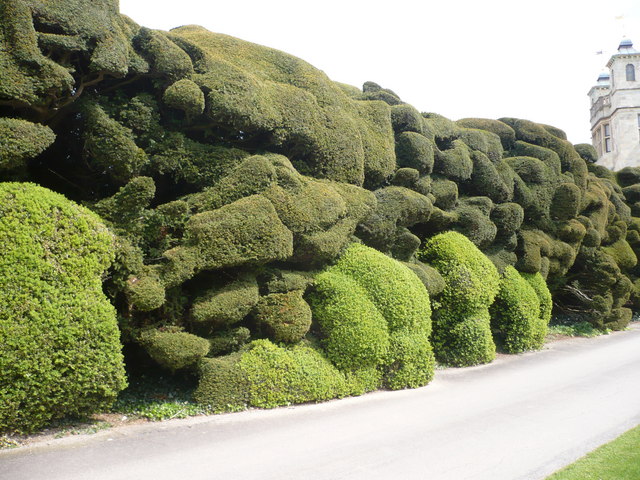
The RHS article about the moth is here; you might find it interesting reading, and, if you see the moth in your locality, report the sighting to the RHS.
See
https://learn1.open.ac.uk/mod/oublog/viewpost.php?post=261570Rachmaninov lived about 70 years, which is approximately 2.2 billion seconds. The quoted number of notes was 7.5 billion billion. So the composer would have needed to have written more than 3 billion notes for every second of his life.
I watched a YouTube video which said Rachmaninov wrote 7.5 x 1018 notes during his lifetime as a composer. Could this be true?
I watched a YouTube video which said Rachmaninov wrote 7.5 x 1018 notes during his lifetime as a composer. Could this be true?

I only wish I could post the scent as well as the picture.

See:
https://learn1.open.ac.uk/mod/oublog/viewpost.php?post=260010
I found this in a puzzle book and thought it would be not too hard, but it was more tricky than I expected. Making sure you haven't missed any triangles, or double counted any, is quite slippery.
Here are the possible kinds of triangle:
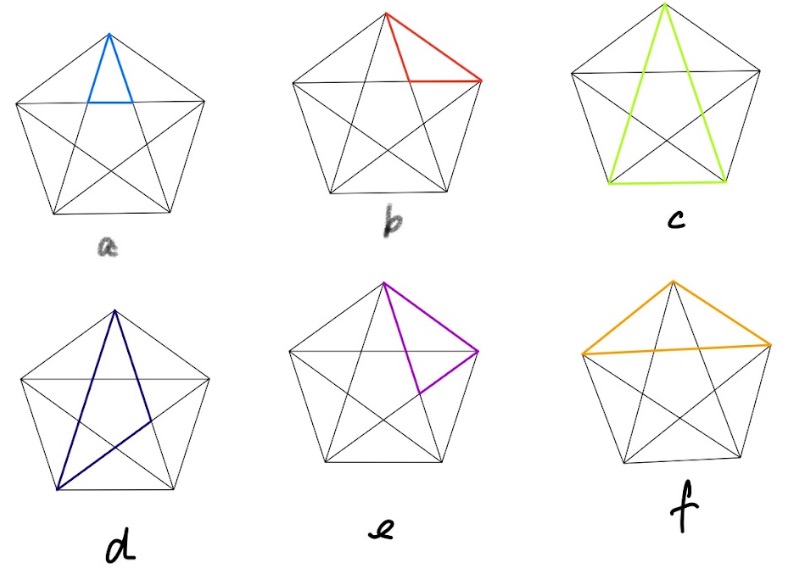
Each of these can occur in five positions, so I thought at first the answer is 6 x 5 = 30, but I was mistaken, because config. e has chirality, i.e. handedness; the triangles can be aligned right or left, and so we get a total of 35.
After more investigation I found a fairly recent paper which gives a general formula for a regular polygon with any numbers of sides, but for larger numbers it gets quite complicated.
I liked this problem, for the original pentagonal case, because it is easy to grasp, less simple than appears at first but is still solvable with some careful working.
I'll post a link to the paper about the general case for anyone interested.
This blog might contain posts that are only visible to logged-in users, or where only logged-in users can comment. If you have an account on the system, please log in for full access.
Total visits to this blog: 2983215


